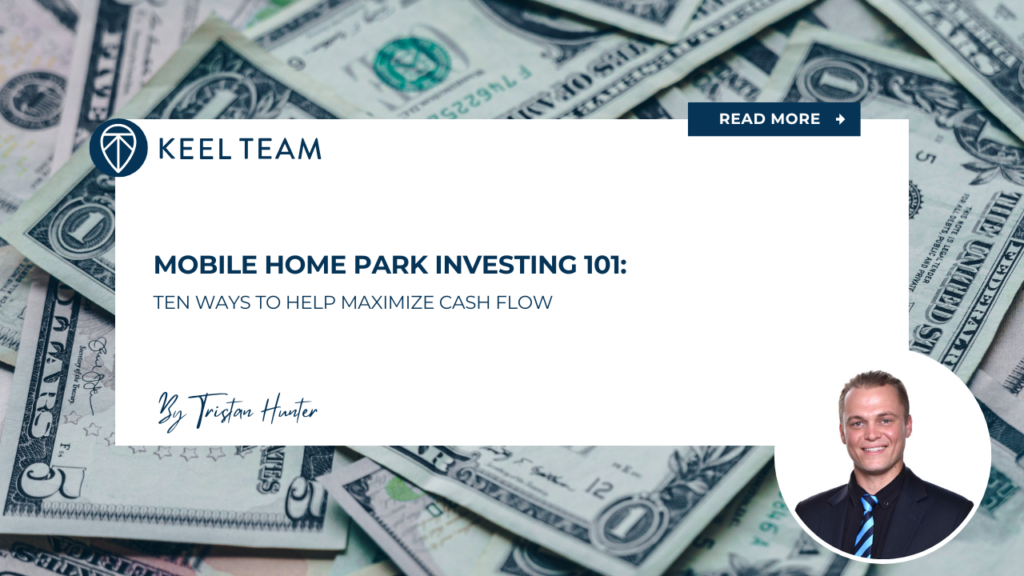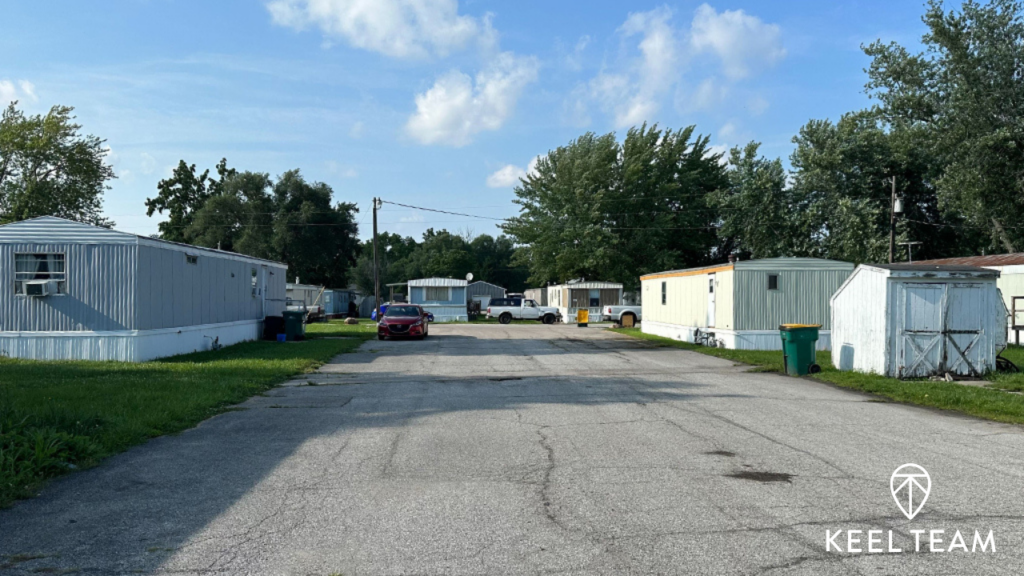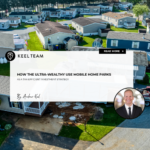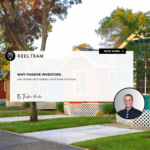Mobile Home Park Investing 101: Ten Ways to Maximize Cash Flow
-
 Tristan Hunter - Investor Relations
Tristan Hunter - Investor Relations

Mobile home park investing can offer strong cash flow potential, but making the most of your investment takes a focused strategy. In the first year, investors may find opportunities to improve revenue, reduce expenses, and streamline operations. Here are ten ways that might help maximize cash flow in the first year of mobile home park ownership.
1. Adjust Lot Rents to Market Rates
Many mobile home parks operate with lot rents well below market value. If the previous owner has not raised rents for years, there might be an opportunity to bring them in line with local rates. Research nearby mobile home parks and compare lot rents to ensure competitive pricing. Gradual adjustments may help retain residents while improving revenue.
2. Reduce Utility Expenses
Utility costs can be a significant expense in this equation. Some investors choose to bill utilities back to tenants instead of absorbing the full cost. Installing sub-meters for water, gas, or electricity might encourage conservation and reduce expenses. If sub-metering is not an option, checking for leaks or inefficiencies in the system could also help lower costs.
3. Improve Occupancy with Strategic Marketing
Vacant lots and homes generate no income. Investors may boost cash flow by filling empty lots and homes as quickly as possible. Running local advertisements, listing availability on online marketplaces, and offering move-in incentives could attract new residents. Some mobile home park owners also partner with local dealers to bring in new or used homes to help fill spaces faster.
Download our FREE eBook on the Top 20 things to know BEFORE investing in mobile home parks!
4. Optimize Property Management
Effective property management can make a difference in operating efficiency. If the mobile home park has an on-site manager, ensuring they are well-trained and motivated might improve tenant satisfaction and rent collection rates. For self-managed properties, setting up digital rent payment options and regular maintenance schedules can help streamline operations.
5. Sell or Rent Out Park-Owned Homes (POH’s)
Mobile home parks often include park-owned homes that require maintenance and repairs. These homes can generate additional income, but they can also be a financial drain if they remain vacant or require constant upkeep. Selling these homes to tenants through a lease-to-own program or direct sale may reduce repair costs while generating steady lot rent revenue. Remember, POH income is non-capitalized and doesn’t contribute towards the valuation of the asset but it typically improves cash flow.
6. Cut Unnecessary Expenses
Reviewing expenses in the first year might uncover cost-saving opportunities. Mobile home park owners often reassess contracts for landscaping, maintenance, and insurance to ensure they are getting competitive rates. Eliminating unnecessary services or negotiating better terms with vendors could free up cash flow for reinvestment.
7. Enforce Timely Rent Collection
Everyone has to pay for the roof over their head, one way or another. Late or unpaid rent can quickly impact cash flow. Setting up clear rent collection policies and enforcing late fees could encourage on-time payments. Digital rent payment options, such as online portals or automatic bank transfers, may also make it easier for residents to pay on time. Maintaining open communication with tenants and addressing concerns early might help prevent collection issues. Furthermore, consider establishing a fair but just eviction process for long-term delinquent tenants.

8. Add Extra Revenue Streams
Some mobile home park owners generate additional income through extra amenities or services. If zoning regulations allow, investors might consider adding storage spaces, vending machines, or even renting out parking spaces for RVs and boats. Laundry facilities, Wi-Fi access, or pet fees could also serve as potential revenue sources.
9. Address Deferred Maintenance Early
Neglected infrastructure can lead to costly repairs down the road. Addressing deferred maintenance in the first year of ownership might prevent unexpected expenses down the road. Checking water and sewer lines, fixing potholes, and maintaining common areas can help preserve the property’s value while keeping tenants satisfied. Well-maintained mobile home parks often attract better long-term residents. Prevention is far often better than cure in this area.
10. Build Strong Tenant Relationships
Happy tenants tend to stay longer and pay on time. Clear communication, responsive management, and community engagement might help create a positive living environment. Organizing occasional community events or simply responding quickly to maintenance requests could make a difference in tenant retention. A stable tenant base often translates to consistent cash flow.
Final Thoughts
Mobile home park investing offers a unique opportunity for cash flow, but maximizing return potential in the first year takes a proactive approach. Adjusting rents, reducing expenses, improving occupancy, and optimizing management could help strengthen financial performance. While no investment guarantees success, taking these steps could put a mobile home park on the path to long-term profitability.
Are you looking for MORE information? Book a 1-on-1 consultation with Andrew Keel to discuss:
- A mobile home park deal review
- Due diligence questions
- How to raise capital from investors
- Mistakes to avoid, and more!
Disclaimer:
The information provided is for informational purposes only and is not investment advice or a guarantee of any kind. We do not guarantee profitability. Make investment decisions based on your own research and consult registered financial and legal professionals. We are not registered financial or legal professionals and do not provide personalized investment recommendations.

Tristan Hunter - Investor Relations
View The Previous or Next Post
Subscribe Below 👇




